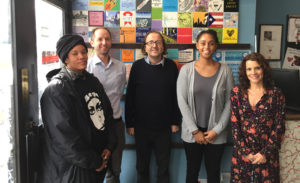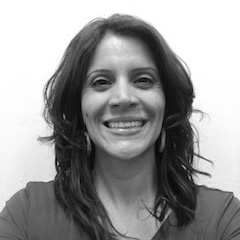For immediate release
Hepatitis C infection (HCV) prevalence in the United States (US) is highest among people who inject drugs (PWID), yet this population is rarely offered antiviral treatment. New antiviral treatment regimens are nearly 100% effective at curing HCV, but few studies have addressed the new regimen’s efficacy among PWID. A randomized controlled trial led by Dr. Pedro Mateu-Gelabert of the ISPH and Dr. Kristen Marks of Weill Cornell Medical College examines the effectiveness of Accessible Care—HCV care designed specifically for PWID—compared to the typical HCV care model in traditional health care settings.
“Providing HCV care in harm reduction settings such as needle exchange programs may be the key in the expansion of HCV treatment needed to achieve HCV elimination,” said Yesenia Aponte-Melendez, the project director for the study. “PWID are often denied treatment due to their drug use. We hope this study will demonstrate that bringing HCV care to needle exchange programs empowers PWID to initiate and manage HCV treatment, to achieve cure, and avoid reinfection.”
Piloted from 2014-2016, the Accessible Care model attempts to ameliorate the shame or stigma often associated with HCV care in traditional health care settings. In the study’s treatment arm, a physician sees patients at needle exchange programs, rather than at health care facilities. Appointments are more fluid, and a proactive approach is taken to reduce loss to follow-up. Study recruitment started in 2016, and will continue until spring 2020, with one additional follow-up year. By reducing health care barriers for PWID, this population is more likely to remain in care, achieve virologic cure, and benefit from substance use and HIV prevention counseling.
“HCV is increasingly concentrated among PWID, who are reluctant to engage with the traditional medical system, and are reluctant to be forthcoming about their injection drug behaviors when they do. This could be a missed opportunity for HCV treatment,” said Dr. Benjamin Eckhardt, study medical provider. “By bringing medical care to a place PWID already frequent, and by taking a holistic approach, we think we can engage more people in care and treatment.”
HCV is a leading cause of liver failure and liver transplantation in the United States, with the disease burden and health care costs expected to rise over time. With an estimated 1.5-2.0 million PWID in the US, and prevalence rates of HCV infection among PWID exceeding 70% in most studies, this population makes up the core of the US HCV epidemic. The substantial health disparities in HCV already evident will become worse as new HCV treatment regimens become more available to patients who do not inject drugs. This study will address the need for data on effective methods to provide successful antiviral therapy to PWID, so that they may also benefit. Effective models for delivering treatment to PWID could then be deployed to prevent onward transmission, helping to end the HCV epidemic.
“Accessible Care brings a new modality of health care delivery to PWID. Instead of expecting patients who struggle with drug use to attend health care settings where they often feel judged and stigmatized, Accessible Care provides HCV care in settings where they feel welcome and where drug use is not an impediment to medical care,” said Dr. Mateu-Gelabert.


